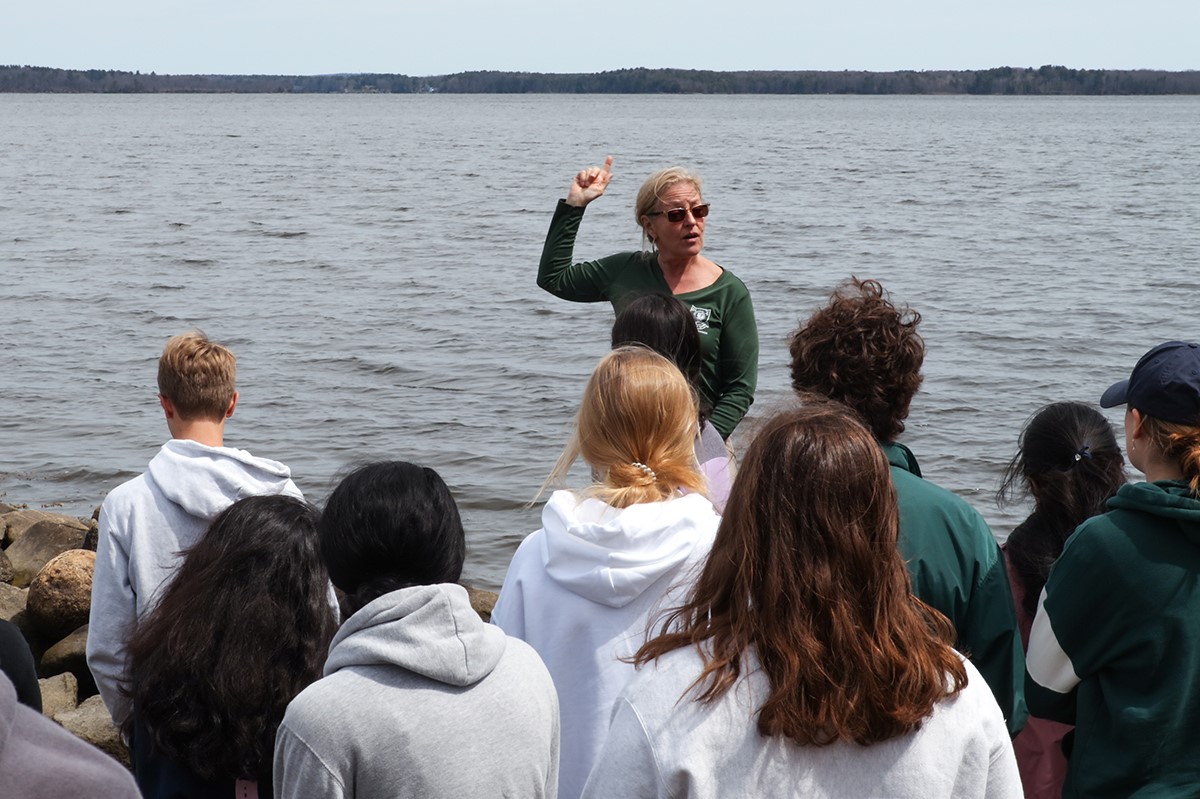Getting Students Involved in Climate Action at Great Bay Reserve
Great Bay National Estuarine Research Reserve in New Hampshire hosted Phillips Exeter Academy students as part of its Climate Action Day activities. Kelle Loughlin, the reserve’s education coordinator, discussed the challenges the estuary faces with the changing climate. She explained that even though the estuary is miles inland from the ocean, the ecosystem will need to adapt to rising seas, saltwater intrusion, and changing coastlines.
In addition to climate change, students learned about the estuary’s unwanted plants. Kelle presented photos of the invasive species that have taken root within the grounds of Great Bay Discovery Center, including bittersweet, wild garlic, and multiflora rose. While multiflora rose is an invasive species, it also provides food for the endangered New England cottontail, the only native rabbit in the area. Students learned about how this poses decision and management challenges for reserve staff.
Students then got their hands dirty, searching for and digging up the unwanted flora. As a reward, the wild garlic was then added as a topping to baked potatoes, which they enjoyed at the end of their adventure.
Read the full article for more activities students participated in at Great Bay Discovery Center.
Check with the education coordinator at your local national estuarine research reserve for student field trip opportunities like this.


